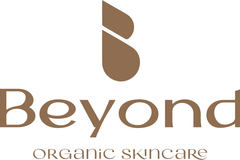If you skin is looking glowing and healthy and you have no skin
problems, irritations, flare ups or inflammation, then it is probably
fine. However, I would recommend converting to natural or organic skin
products that are free from synthetic chemicals. This is because skin is
the largest organ in the body and it absorbs chemicals into the blood stream
through the skin, as demonstrated by skin patches used to deliver drugs.
However, if you are experiencing
any problems with your skin then you may need to change your skin routine and
probably your skin products too. Firstly, give your skin a break. If you
are sensitive to a product you are currently using and start using a new
product immediately, you may mistakenly think the new product is causing sensitivity
too.
So do nothing but cleanse with
warm water and a soft cloth for a week and then patch test a new product before
using it on your face. To do this, apply a small amount on the inside of your
elbow or behind your ear. Leave for 24 hours and check for any signs of
irritation such as redness, itchiness or a rash. If you have no reaction, then
apply to your face as directed. If you have really sensitive skin, then wait a
week after trying one new product before introducing another.
Everybody’s skin is different, so
you need to find a solution that will fit in, not just with your skin-type but
with your lifestyle. It can be difficult to get an unbiased professional
opinion on which products you should use, as most beauticians, certainly on
beauty counters in shops are there to promote their own goods, and your local
beautician will have her own favourites too.
Look for quality, honest, natural
skin products that are transparent about the quality and their
ingredients. Word of mouth from friends who have similar skin types to
you are also helpful. Some brands also make small trial sizes, allowing you to
test a variety of products to find the right ones for you without splashing out
on the full sized products.
Read the labels and look at the
ingredients. Unfortunately there are currently no laws about the
labelling of products ‘natural’ and ‘organic’. Manufacturers are allowed
to call themselves ‘organic’ with just 1% organic ingredients, and the
remainder could be full of synthetic chemicals. The Soil Association,
amongst others, is lobbying hard to get this changed.
Here is some links to our best selling moisturisers:
https://www.beyondorganicskincare.com/collections/skincare/products/light-facial-24-hour-moisturiser-natural
https://www.beyondorganicskincare.com/products/organic-miracle-worker-face-cream?_pos=1&_sid=94ff7a9d3&_ss=r
https://www.beyondorganicskincare.com/search?q=day+cream

